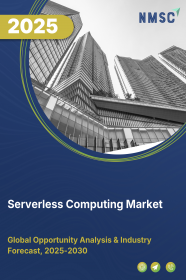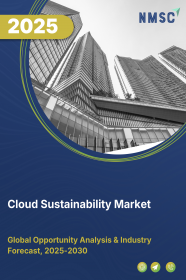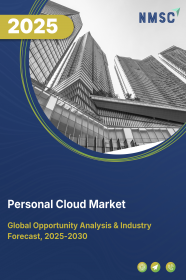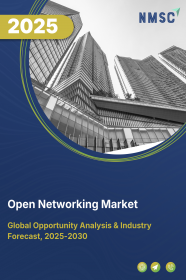
Serverless Computing Market by Service (Compute, Serverless Storage, Serverless Database, Application Integration, Monitoring & Security, and Other Services), by Service Model (Function-as-a-service (FaaS), Backend-as-a-service (BaaS), Microservices, and Event-Driven Computing), by Service Type (Professional and Managed), by Compute (Functions and Containers), By Database (Relational and Non-relational), by Deployment (Public Cloud)– Global Opportunity Analysis and Industry Forecast 2025–2030
US Tariff Impact on Serverless Computing Market
Trump Tariffs Are Reshaping Global Business
Serverless Computing Market Overview
The global Serverless Computing Market size was valued at USD 21.84 billion in 2024 and is predicted to reach USD 60.93 billion by 2030 with a CAGR of 18.4% from 2025-2030.
Some of the factors that fuels the market globally are expansion of 5G networks, boosting capitalizing in artificial intelligence and growing adoption of IoT devices. Furthermore, some notable players are using business tactics such as collaboration, product launches and acquisition to maintain their stance in the industry. The market is however hindered by the initial upfront cost associated to transitioning. On the other hand, the market shows promising future with the integration of quantum computing with serverless computing.
Expansion of 5G Networks Propels Market Growth
The 5G networks drives the serverless computing market expansion by improving data transfer speeds and reducing latency that are important for real-time applications demanded by the sectoral industries. According to the report published by the 5G Americas in July 2024, 5G global connections reached nearly 2 billion in 2024 and this figure is projected to reach 7.7 billion by 2028 marking a growth of around 285% within a time span of just 4 years. The growing connections reflects the growing network performance due to real-time processing and faster data transmission, essential for the better functioning of serverless architecture, ultimately leading to market growth.
Surging Investment in Artificial Intelligence Drives Market Growth
The industry is driven by rising demand for a(AI). This is due to the flexibility it provides to the developers enabling dynamic expansion, cost-efficiency, and smoothened deployment of AI models. According to PwC, AI is projected to contribute up to USD 15.7 trillion to the global economy in 2030. The growing investment in AI highlights substantial interest in the technologies showcasing its potential leading the serverless computing market growth.
Boosting Global Adoption of IoT Fuels Market Growth
Global adoption of the Internet of Things (IoT) boosts the market by increasing the demand for scalable and efficient backend solutions. According to the report published by the 5G Americas in July 2024, global IoT subscriptions summed 3.3 billion in 2024 and this number is estimated to reach 5 billion by 2028 reflecting a change of 51.5% within a time span of 4 years.
IoT devices generate vast amounts of data requiring real-time processing and seamless management that is handled effectively by serverless infrastructure, thereby, reducing operational costs and boosting the market of serverless computing.
High Initial Cost Hinder Market Growth
There exist high initial costs associated with transitioning to a serverless architecture, that includes rewriting legacy applications, training developers, and integrating with existing systems that adds to the financial burden restraining small players for adoption.
Integration of Quantum Computing Creates Future Opportunities
Integration of quantum computing with serverless computing is anticipated to create significant growth opportunity for the industry in coming years. The platforms scalability and adaptability enable researchers and developers to explore quantum computing in cloud-based interface. For instance, in March 2024, Nvidia Corporation launched Quantum Cloud built on open-source CUDA-Q platform for developing and testing quantum algorithms. Such developments complement researchers and developers to push the boundaries of quantum computing exploration using cloud platform.
Market Segmentations and Scope of the Study
The serverless computing market report is classified on the basis of service, service model, service type, compute, database, deployment, organization size, application, end-user industries, and region. On the basis of service, the market is grouped into compute, serverless storage, serverless database, application integration, monitoring and security, and other services. On the basis of service model, the market is divided into function-as-a-service (FaaS), backend-as-a-service (BaaS), microservices, and event-driven computing. On the basis of service type, the market is segmented into professional and managed. On the basis of compute, the market is classified into functions and containers. On the basis of database, the market is grouped into relational and non-relational. On the basis of deployment, the market is segmented into public cloud, private cloud, and hybrid cloud. On the basis of organization size, the market is divided into small enterprises, medium enterprises, and large enterprises. On the basis of application, the market is grouped into web and mobile app development, data analytics, AI and machine learning, devops and continuous delivery, and cloud migration. On the basis of end-user industries, the market is classified into IT and telecommunication, BFSI, retail, government, and others. Regional breakdown and analysis of each of the aforesaid segments includes regions comprising of North America, Europe, Asia-Pacific, and RoW.
Geographical Analysis
North America region leads the serverless computing market share and it is expected to maintain its dominance in the market during the forecast period due to the growing 5G network in the region facilitating edge computing more efficiently. According to the report published by the 5G Americas in July 2024, North America’s 5G adoption summed 32% of all wireless cellular connections in the region and in the Q1 of 2024, the region added 22 million new 5G connections, bringing the total to 220 million. The growing 5G user base reflects the improved network performance due to faster data transmission leading to market growth in the industry.
Moreover, global adoption of IoT drives the serverless computing market as businesses require scalable and cost-effective solutions for managing vast data from connected devices generated from the IoT devices. As per the study by the PwC Canada 2023, 53% of the organisation did use IoT devices in supply chain operations. The growing IoT devices in the region necessitates the usage of serverless infrastructure to handle massive amount of data generated leading to growth in the market.
Asia-Pacific region on the other hand shows steady rise in the market due to increasing rely on AI’s scalable solutions for complex computational needs for cost-effectiveness and on-demand scaling.
According to the report issued by the Internation Trade Administration in 2024, the AI market in India is projected to reach USD 8 billion by 2025, growing at a CAGR of over 40% from 2020 to 2025. The growing AI market in the region facilitates the growth of serverless computing leading to growth in the industry.
Besides, the government initiatives to boost the AI in the region is also boosting the serverless computing industry. According to the report published by the Ministry of Foreign Affairs, China is anticipated to launch AI Capacity-Building Action Plan for Good and for All to bridge the AI divide in the country.
It includes fostering North-South, South-South, and triangular cooperation, sharing AI education, developing and boosting green AI development. Such development complements the cloud computing industry facilitating growth.
Competitive Landscape
Various market players operating in the serverless computing industry is Amazon.com, Inc, Microsoft Corporation, Google LLC, International Machines Corporation, Oracle Corporation, Cloudflare, Inc, Vercel Inc, Alibaba Group Holding Limited, Netlify, Salesforce, Inc, CloudSigma AG, Cisco Systems, Inc, Red Hat, Inc, DigitalOcean, LLC, Tencent Cloud and others. These market players are adopting various strategies such as collaboration and product launches to maintain their dominance in computing industry.
For instance, in October 2024, Google LLC collaborated with Intel Corporation to launch confidential computing instances based on 4th Gen Intel Xeon processors in multiple service regions. This product launch shows the company’s continuous research and development in the field of cloud computing.
Besides, in October 2024, DigitalOcean, LLC launched DigitalOcean GPU Droplets featuring Nvidia Corp.’s H100 graphics processing units for AI use cases including experimentation, training and inference on machine learning models, generative AI applications and more. This aims to provide the critical infrastructure necessary to develop next-generation applications to small and mid-sized enterprises.
Furthermore, in May 2023, Vercel Inc. partnered with Neon to launch first serverless SQL database built for the frontend. The product launch provides businesses with the ability to deploy high-performing, low latency web applications with serverless Postgres capabilities.
Key Benefits
-
The report provides quantitative analysis and estimations of the serverless computing market from 2025 to 2030, which assists in identifying the prevailing market opportunities.
-
The study comprises a deep-dive analysis of the current and future serverless computing market trends to depict prevalent investment pockets in the industry.
-
Information related to key drivers, restraints, and opportunities and their impact on the serverless computing market is provided in the report.
-
Competitive analysis of the players, along with their market share is provided in the report.
-
SWOT analysis and Porters Five Forces model is elaborated in the study.
-
Value chain analysis in the market study provides a clear picture of roles of stakeholders.
Serverless Computing Market Key Segments
By Service
-
Compute
-
Serverless Storage
-
Serverless Database
-
Application Integration
-
Monitoring & Security
-
Other Services
By Service Model
-
Function-as-a-service (FaaS)
-
Backend-as-a-service (BaaS)
-
Microservices
-
Event-Driven Computing
By Service Type
-
Professional
-
Managed
By Compute
-
Functions
-
Containers
By Database
-
Relational
-
Non-relational
By Deployment
-
Public Cloud
-
Private Cloud
-
Hybrid Cloud
By Organization Size
-
Small Enterprises
-
Medium Enterprises
-
Large Enterprises
By Application
-
Web and Mobile App Development
-
Data Analytics
-
AI and Machine Learning
-
DevOps and Continuous Delivery
-
Cloud Migration
By End-Users Industries
-
IT & Telecommunication
-
BFSI
-
Retail
-
Government
-
Others
By Region
-
North America
-
The U.S.
-
Canada
-
Mexico
-
-
Europe
-
The U.K.
-
Germany
-
France
-
Italy
-
Spain
-
Denmark
-
Netherlands
-
Finland
-
Sweden
-
Norway
-
Russia
-
Rest of Europe
-
-
Asia-Pacific
-
China
-
Japan
-
India
-
South Korea
-
Australia
-
Indonesia
-
Singapore
-
Taiwan
-
Thailand
-
Rest of Asia-Pacific
-
-
RoW
-
Latin America
-
Middle East
-
Africa
-
Key Players
-
Amazon.com, Inc
-
Microsoft Corporation
-
Google LLC
-
International Machines Corporation
-
Oracle Corporation
-
Cloudflare, Inc
-
Vercel Inc
-
Alibaba Group Holding Limited
-
Netlify
-
Salesforce, Inc
-
CloudSigma AG
-
Cisco Systems, Inc
-
Red Hat, Inc
-
DigitalOcean, LLC
-
Tencent Cloud and others
REPORT SCOPE AND SEGMENTATION:
|
Parameters |
Details |
|
Market Size in 2024 |
USD 21.84 billion |
|
Revenue Forecast in 2030 |
USD 60.93 billion |
|
Growth Rate |
CAGR of 18.4% from 2025 to 2030 |
|
Analysis Period |
2024–2030 |
|
Base Year Considered |
2024 |
|
Forecast Period |
2025–2030 |
|
Market Size Estimation |
Billion (USD) |
|
Growth Factors |
|
|
Countries Covered |
28 |
|
Companies Profiled |
15 |
|
Market Share |
Available for 10 companies |
|
Customization Scope |
Free customization (equivalent to up to 80 working hours of analysts) after purchase. Addition or alteration to country, regional, and segment scope. |
|
Pricing and Purchase Options |
Avail customized purchase options to meet your exact research needs. |

















 Speak to Our Analyst
Speak to Our Analyst




















